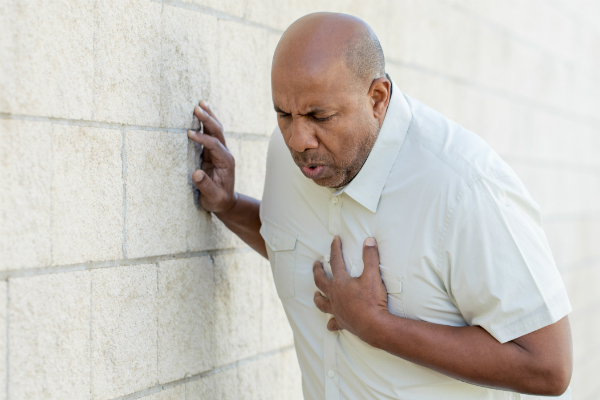From pain in your chest to shortness of breath, these common signs of a heart attack in men could save your life.
Heart disease accounts for 1 in 4 deaths in the US every year. While it is the leading cause of death in both men and women, in 2009, more than half of the deaths due to heart disease were men. Each year, millions of Americans take precautions to lower their risk of a heart attack by eating well, exercising, and visiting their primary care physician for regular exams. Yet the most common symptoms of a heart attack may go unnoticed by many men.
What are the signs of a heart attack in men?
The symptom most commonly associated with a heart attack is chest pain and discomfort. There are, however, more subtle signs of a heart attack in men that often go unnoticed until it is too late. Among them are:
- Shortness of breath: feeling as though you have run a marathon when you have only walked to the bathroom.
- Stomach Pain, nausea, or vomiting: many people who are experiencing a heart attack feel as though they have severe heartburn or are about to vomit.
- Dizziness or fainting: because the heart is failing to effectively pump blood to the brain and other organs, dizziness or even fainting may occur.
- Upper Body Pain: some experience pain in the upper back, neck, shoulders, or arm, particularly on the left side of the body.
How is a heart attack diagnosed?
The only way to know if you are having or have had a heart attack is to visit a hospital or medical center. There, doctors will perform a variety of tests to determine whether you have had a heart attack, the type of heart attack you are experiencing, the location of the blockage, and the course of treatment to preserve your heart muscle.
What should I do if I think I am experiencing a heart attack?
Use the five-minute rule. Men are especially tempted to “tough out” heart attack symptoms that should never be ignored. If you are experiencing chest pain, shortness of breath, numbness or pain radiating down one arm, lightheadedness, or sudden sweating with nausea that lasts for more than five minutes, call 9-1-1 or visit the closest medical center that specializes in cardiology.
This is why Arkansas patients trust ARcare. Not only does our team of medical professionals treat every family member at every stage of their life, but they also provide cardiology care for those who are at risk for or who have experienced a heart attack. For more information on what ARcare can do for you or to schedule your appointment, contact us today.
